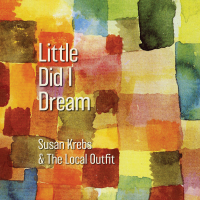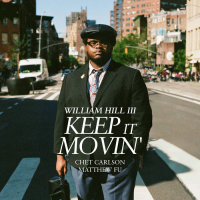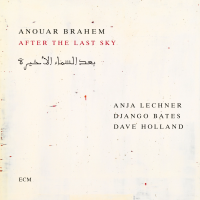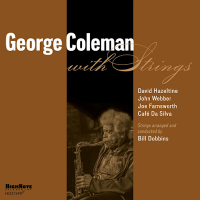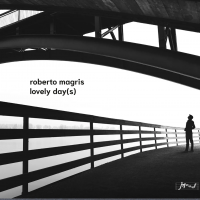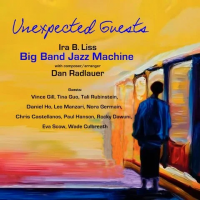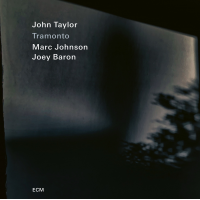Home » Jazz Articles » Multiple Reviews » Stunt Records: Re/Defining Mainstream
Stunt Records: Re/Defining Mainstream
At the heart of all the stylistically different releases are finely crafted sounds and an emphasis on classic values like clear melody and rich rhythms. Dissonance and abstract sound isn't something that is likely to be found on releases by Stunt Records. What is found is a string of records that continue to define and redefine the mouldy expression of mainstream jazz.
 Inger Marie
Inger Marie
My Heart Would Have A Reason
Stunt Records
2009
On My Heart Would Have A Reason, the Norwegian female jazz singer Inger Marie Gundersen explores a varied program of original compositions and pop tunes. There's a decidedly laidback mood about the album, which is played mostly in mid-tempo or slower, and the crisp, warm feeling of the album is underlined by Gundersen's smoky voice, one that wraps itself like velvet around the songs. George Harrison's ballad "Something" is played in a relaxed, airy groove created by the rhythm section of bassist Ole Kristian Kvamme and drummer Tom Rudi Torjussen. Together with Oscar Jansen's sparkling piano and the downplayed funky guitar of Georg Wadenius they create a luxurious setting for Gundersen's vocal interpretation.
Mathias Eick
trumpetb.1979
My Heart Would Have A Reason is an album for early mornings and late nights. It's mood music in the best sense of the word. Music that's meant to seduce and succeeds in doing so in a most convincing manner.
 Paul Banks
Paul Banks
Grace
Stunt Records
2008
There's also a feeling of late night or early morning in the music played by guitarist Paul Banks and saxophonist Jakob Dinesen. But whereas Inger Marie Gundersen plays a richly textured pop jazz, Banks and Dinesen reside in the area of low-key blues.
Banks works as musician, educator, translator and writer and his intellectual appearance with black horn-rimmed glasses, as it's depicted on the cover of Grace, is somewhat at odds the contents of the album. Here, Banks shows himself as a capable interpreter of a country-classic like "The Tennessee Waltz," which is given a bluesy twist, but it's Banks' own songs that justifiably take the spotlight. "A Man of Many Faces" brings in guest appearances by female singers Hanne Boel and Marie Fisker, whose sighing vocals perfectly accompany Dinesen's curling saxophone and set the scene for a down-tempo blues over which Banks sings a lyric of the many different sides of personality; he also gives a greeting to Leonard Cohen: "Unlike the bird on the telephone wire / Never wondering where or why / The dubious gift of philosophy / Makes me a man of many faces."
Even though Banks is indeed a man of many faces, Grace still gives the impression of a unified artistic statement. It isn't high art, but still a thoroughly satisfying release whose take on the blues comes across as sincere and honest without any post-modern pretension.
 Alain Apoloo's Apipipo
Alain Apoloo's Apipipo
Flood Gate
Stunt Records
2009
Paul Banks is also involved in another, altogether different release, Flood Gate, by the African guitarist Alain Apaloo, whose group Apipipo plays a genre-bending experimental world music. Banks, who writes the liner notes for the album, makes the following statement about the music: "I'm not sure what to call the music: Afro-jazz-pop-acid-ethno-world-music? It's not really important. It is Apaloo-Apipipo music."
Banks is right that the music on Flood Gate is hard to pinpoint, carried as it is by a myriad of influences. "Dorkunu," for instance, combines funky thumb-bass, swirling flutes, distorted guitar and chant-like vocals into a groovy stew.
Apapoo's abilities as a guitarist are simple stunning and it is no coincidence that a fellow supreme guitarist, 
Kurt Rosenwinkel
guitarb.1970
 tRIO
tRIO
After The Carnaval
Stunt Records
2009
Whereas Alain Apapoo travels all around the world musically, the style of tRIO, as the name implies, is thoroughly Brazilian. In the group are the Danish pianist 
Thomas Clausen
piano
b.1949
Hermeto Pascoal
multi-instrumentalist
1936 - 2025
Antonio Carlos Jobim
piano
1927 - 1994
What is noticeable about tRIO is how they effortlessly shift between the different textures of their instruments. "Samba Train" finds Clausen moving from Rhodes to piano, taking full advantage of the instruments' different resonances, while the title track beautifully explores the nuances of Malheiros' voice. After The Carnaval is the musical equivalent of watching the sun setting on a lonely beach.
 Hans Ulrik
Hans Ulrik
Slow Progression
Stunt Records
2009
Like Thomas Clausen, saxophonist Hans Ulrik is interested in exploring musical texture, but unlike Clausen, Ulrik sticks mostly to his Nordic heritage, which is integrated into an electric fusion music that relies heavily on rhythmic patterns of repetition. The players on Slow Progression emphasise the Nordic sound of the album with ECM-luminaries such as bassist 
Anders Jormin
bass
Jan Garbarek
saxophone
b.1947
Slow Progression is a record whose structures unfolds slowly over time. It's an album which prefers the whole instead of the parts, but, of course, the two things are interrelated and the melodic beauty and enchanting rhythms of the album reveal themselves both in momentary glimpses and over longer stretches of time. The sound and tone of the music is Nordic, but the approach and aesthetic has much in common with trumpeter 
Miles Davis
trumpet
1926 - 1991
 Jesper Thilo with Strings
Jesper Thilo with Strings
Remembering Those Who Were
Stunt Records
2009
Like Hans Ulrik, saxophonist 
Jesper Thilo
b.1941
Dexter Gordon
saxophone, tenor
1923 - 1990
Ben Webster
saxophone, tenor
1909 - 1973
There is truth in Thilo's statement. So much so that he is able to take on perhaps the greatest challenge for all saxophonists: to play with strings. 
Charlie Parker
saxophone, alto
1920 - 1955
Stan Getz
saxophone, tenor
1927 - 1991
Art Pepper
saxophone, alto
1925 - 1982
Tracks and Personnel
My Heart Would Have A Reason
Tracks: Some Things Never Change; I Can See Clearly Now; That's All; Something; The Road From Yesterday; Last First Kiss; The First Time Ever I Saw Your Face; I Only Want To Be With You; Turn Your Lights Down Low; Why Should I Cry For You; Even When.
Personnel: Inger Marie Gundersen: vocal; Oscar Jansen: piano, Rhodes; Ole Kristian Kvamme; Tom Rudi Torjussen: drums, percussion; øivind G. Str ømer: alto and soprano saxophones; Mathias Eick: trumpet; Georg Wadenius: guitars and scat; Rasmus Solem: vocal (9).
Grace
Tracks: The White Hotel; Grace; Tennessee Waltz; Ginhouse Blues; Man Of Many Faces; Indian Summer; Ditty Wah Ditty; Comes Love; Indigo Night; Crazy Love.
Personnel: Paul Banks: guitar, vocal; Jakob Dinesen: tenor saxophone; Maria Fisker: vocal; Hanne Boel: vocal; Peter Banks Johns: harmonica.
Flood Gate
Tracks: Kule Part I; Dorkunu; Gbedododa; Turns; Anita; Flood Gate; Wo SimЁҰ; Ripoux; Kanami; Mamie; Who I Am; Bantima; Kule Part 2.
Personnel: Alain Apaloo: guitar, vocal; Mariane Bitran: flutes; Simon Spang- Hanssen: soprano and tenor saxophone; Gorm BЁ№low: piano, keyboards; Morten Ankerfeldt: bass; Rasmus Lund: drums; Ayi Solomon: percussion; Ida-Bj?rg Leisin: background vocals; Katrine Petersen: background vocals; Gull-Maj: background vocals; Sahra Da Silva: background vocals; Rasmus Grossel: drums (2, 3, 6); Sebastian MarkЁҰzana: bass (5, 10); Mikkel schnettler: percussion (2-4, 7, 9, 11, 12); Dominique Sablier: keyboards (4,10); Kurt Rosenwinkel: guitar (4, 11).
After the Carnaval
Tracks: Esperando o Malta; Nostalgia; After the Carnaval; Rainha do Mar; Ao Mestra Cartola; Samba Train; Yemanja; Moto Continuo; Tupizinho; Sete PЁҰtalas.
Personnel: Thomas Clausen: piano, Rhodes; Celia Malheiros: guitar, vocal, percussion; Carlos Malta: soprano saxophones, flutes.
Slow Procession
Tracks: The Beginning/All Things Shine; Slow Procession; Before; Make Rain; The Wanderer; Companionship; After; Oasis.
Personnel: Hans Ulrik: saxophones, alto flute; Kasper Tranberg: trumpet; Eivind Aarset: guitar; Anders Jormin: bass; Audun Kleive: drums.
Remembering Those Who Were
Tracks: Donna Lee; When Sunny Gets Blue; Ghost Of A Chance; Dindi; Cherokee; I Remember Clifford; Moonlight Serenade; Divertimento; Remembering Those Who Were.
Personnel: Jesper Thilo: tenor and soprano saxophone, clarinet; Olivier Antunes: piano; Bo Stief: bass; Frands Rifbjerg: drums; Ole Kock Hansen: arrangements, conductor, piano; strings.
Tags
Comments
PREVIOUS / NEXT
Support All About Jazz
 All About Jazz has been a pillar of jazz since 1995, championing it as an art form and, more importantly, supporting the musicians who make it. Our enduring commitment has made "AAJ" one of the most culturally important websites of its kind, read by hundreds of thousands of fans, musicians and industry figures every month.
All About Jazz has been a pillar of jazz since 1995, championing it as an art form and, more importantly, supporting the musicians who make it. Our enduring commitment has made "AAJ" one of the most culturally important websites of its kind, read by hundreds of thousands of fans, musicians and industry figures every month.







 Buy Now
Buy Now

